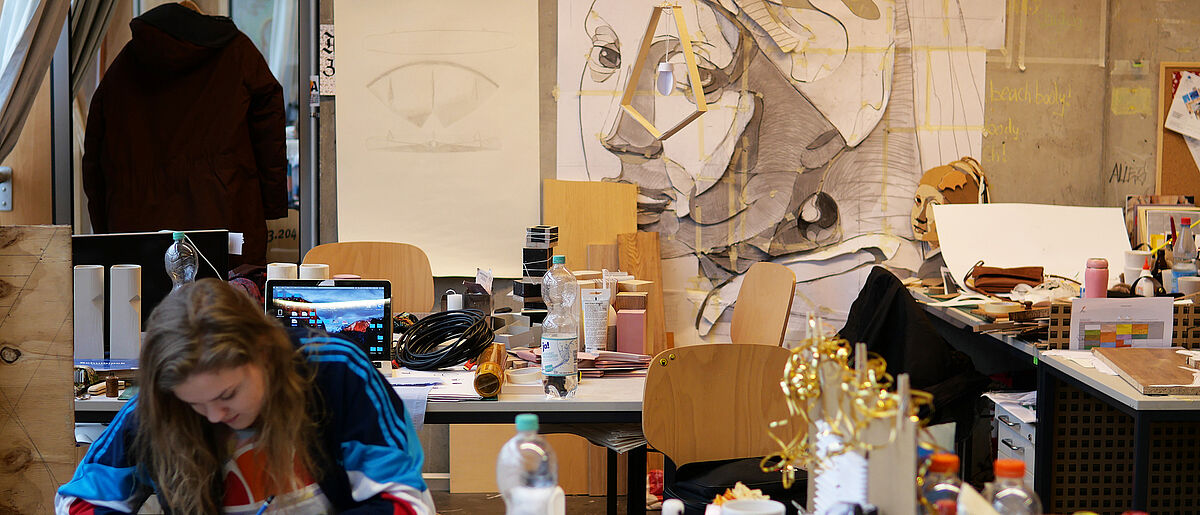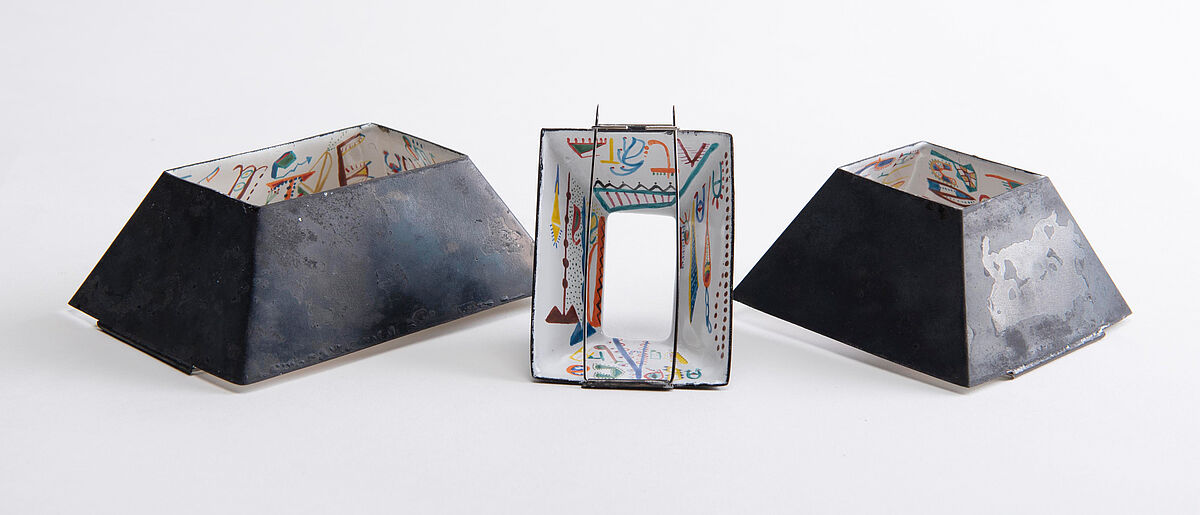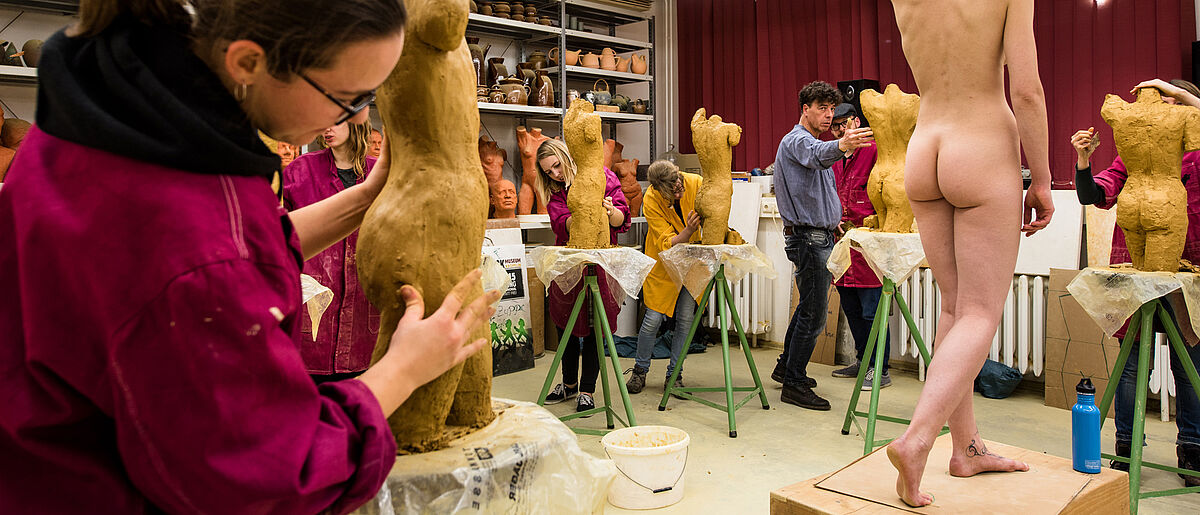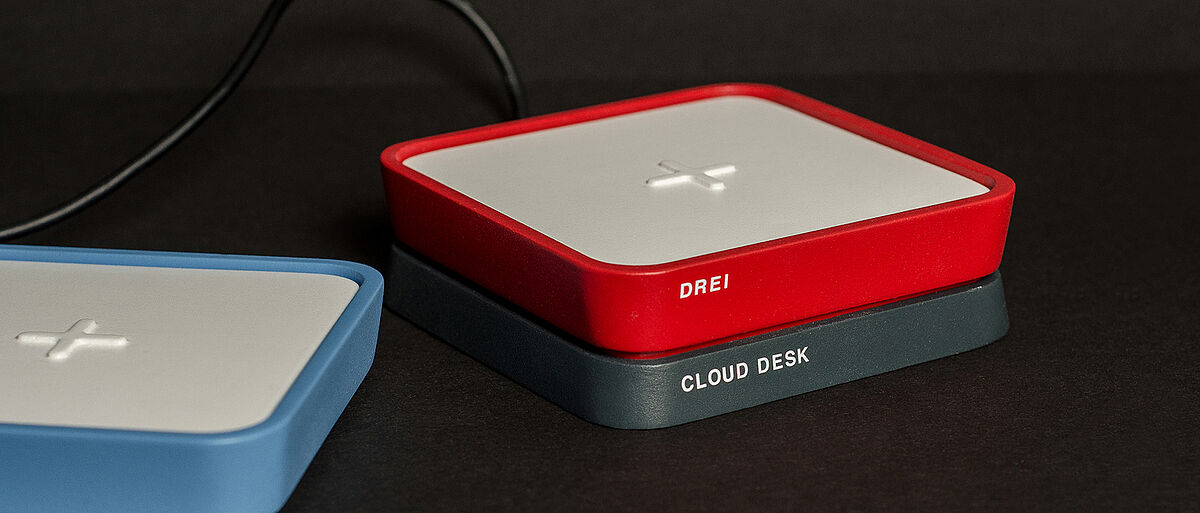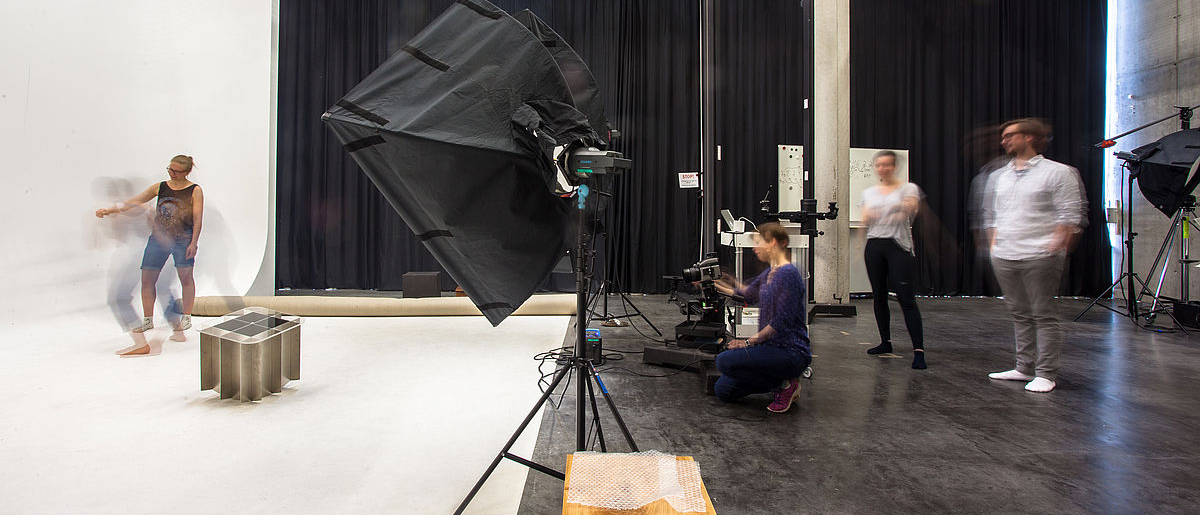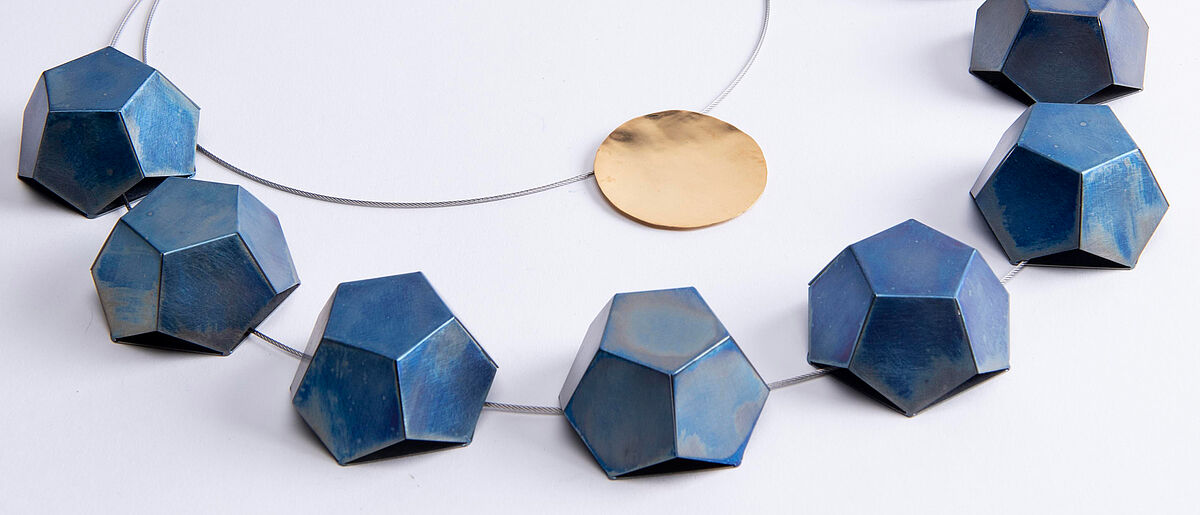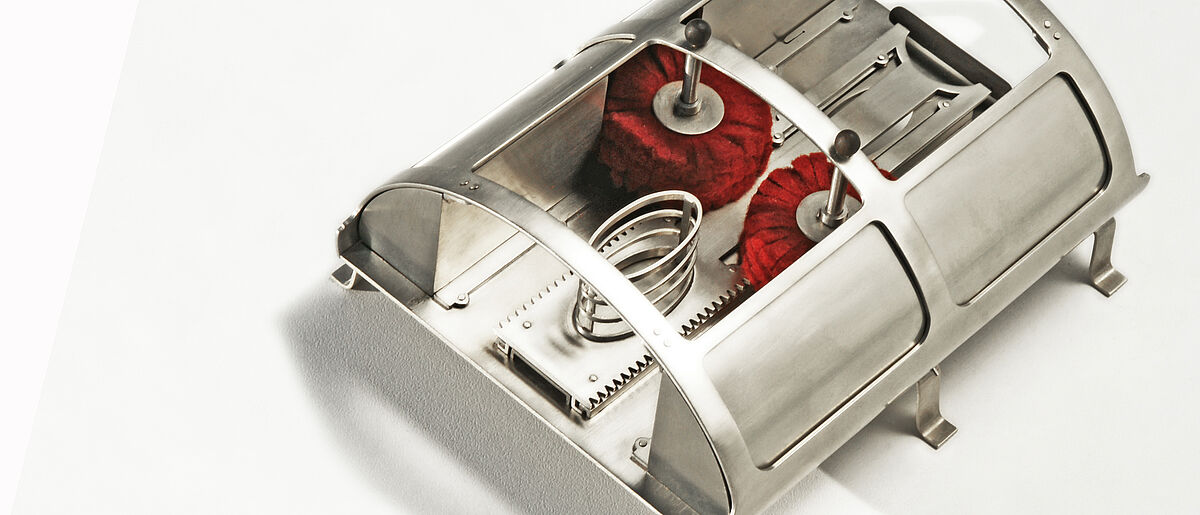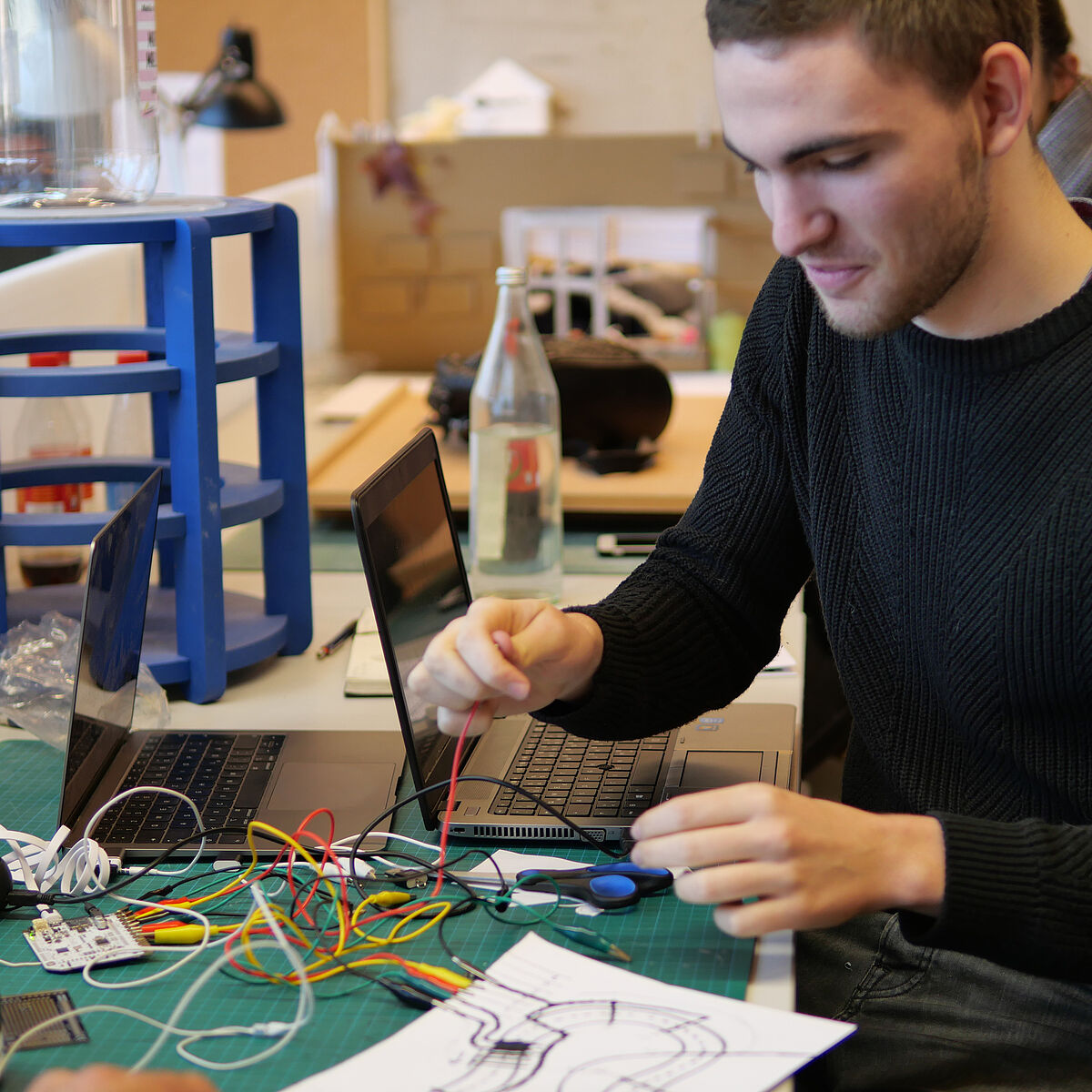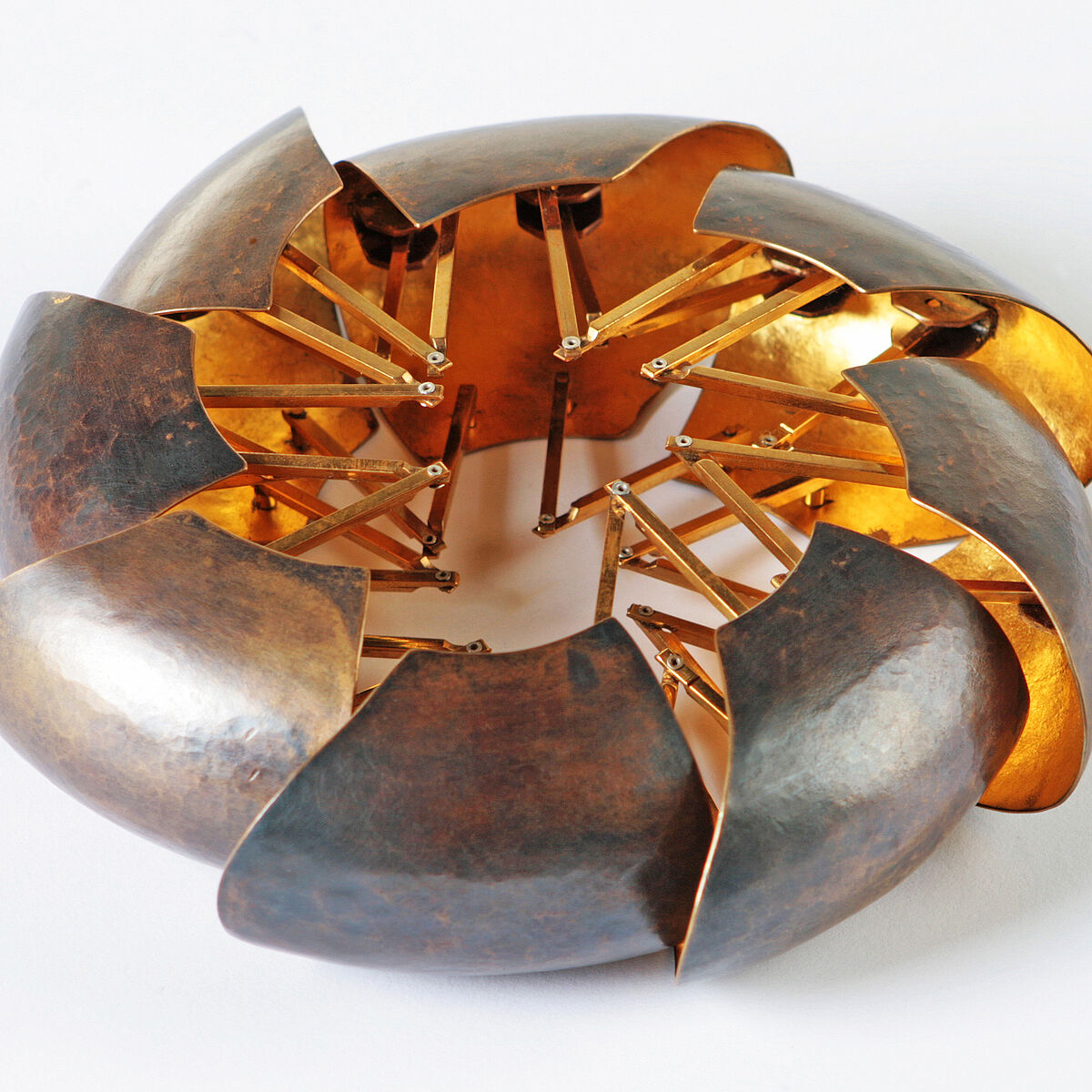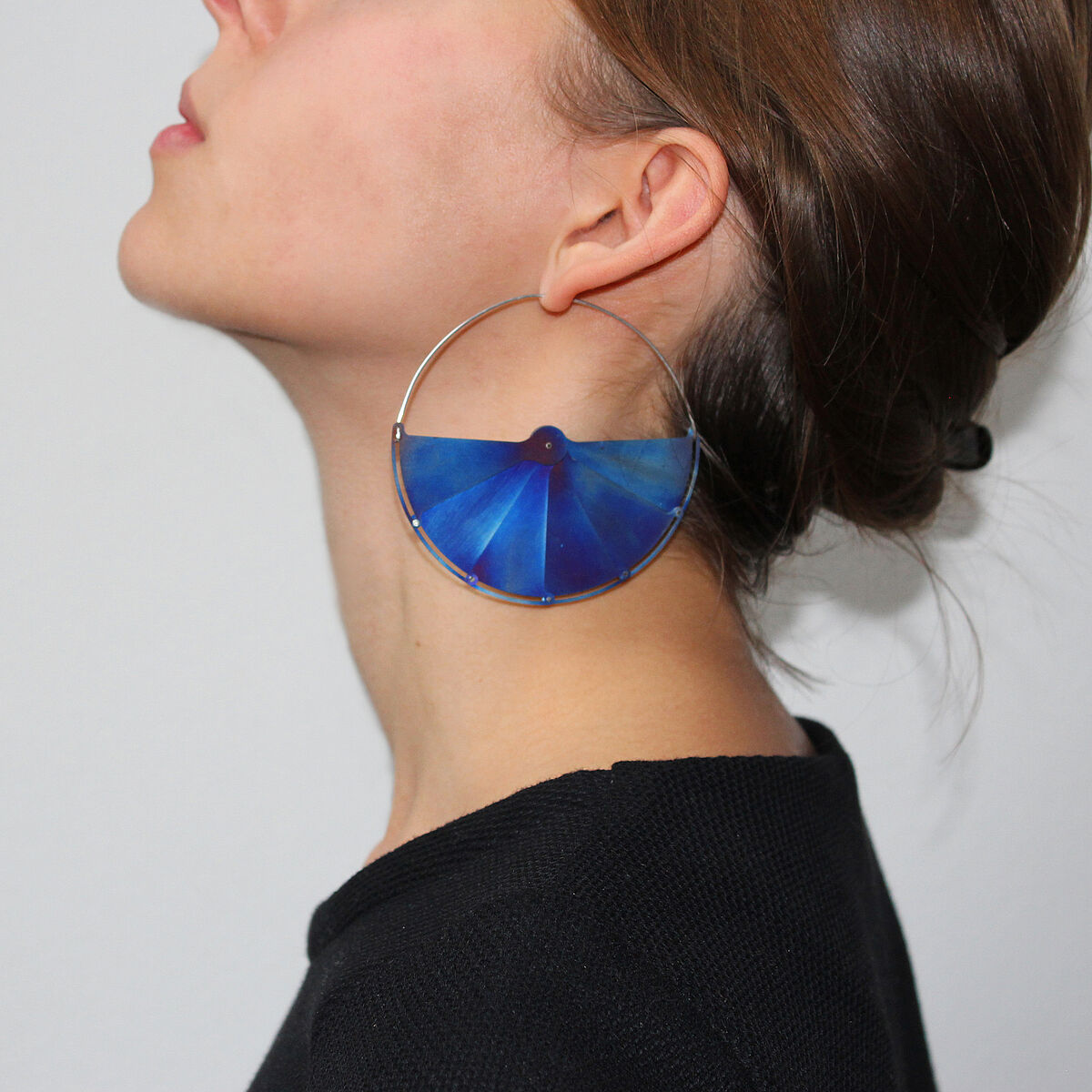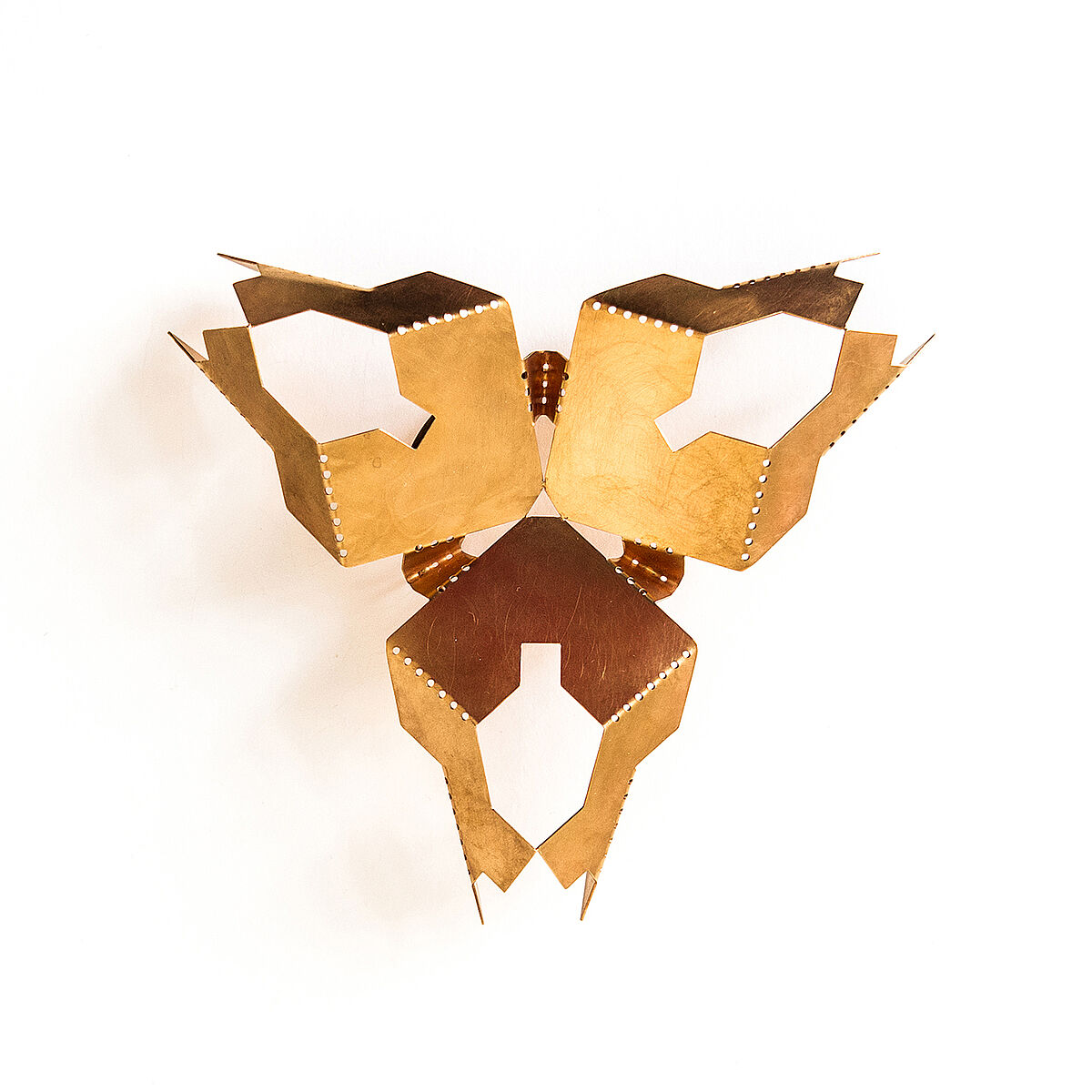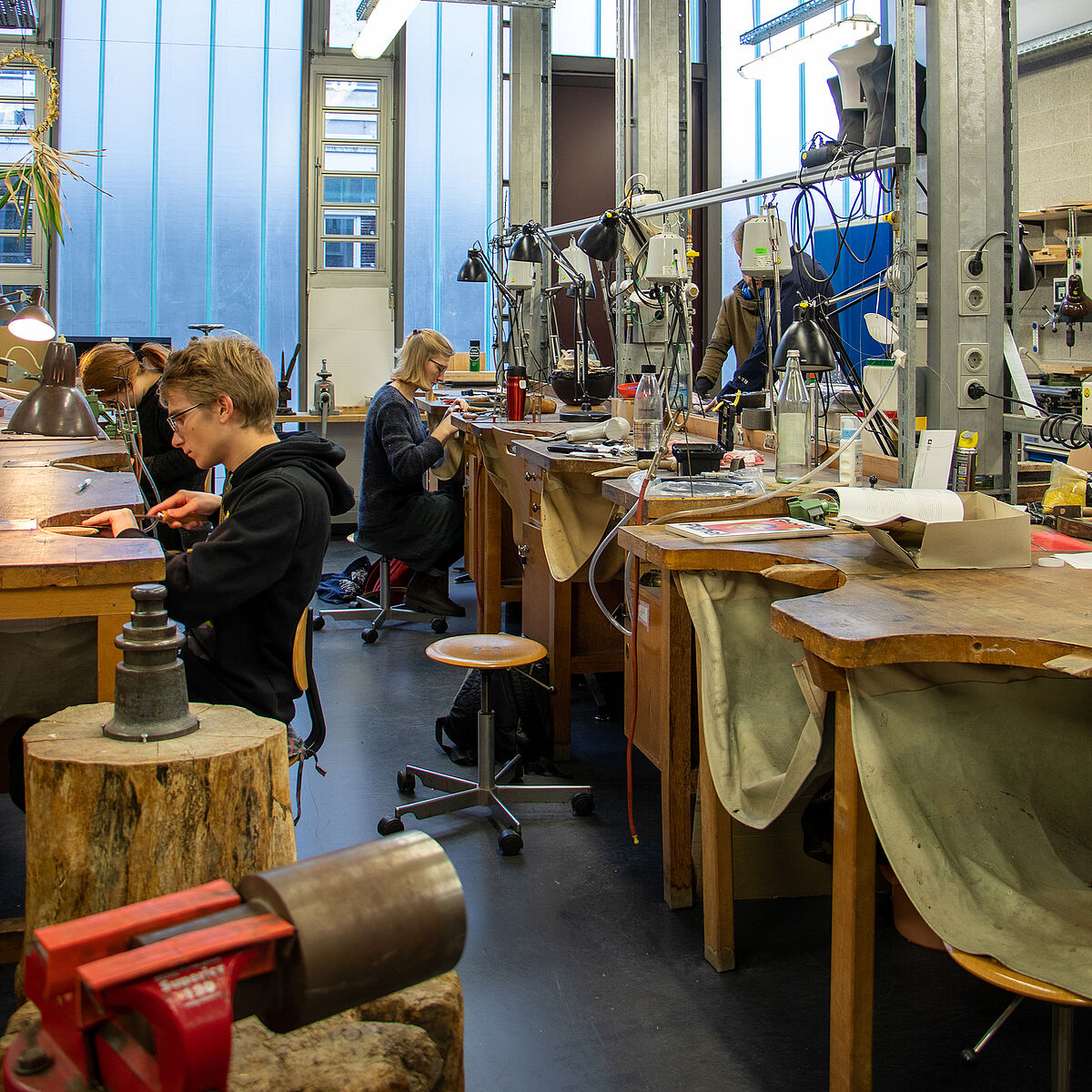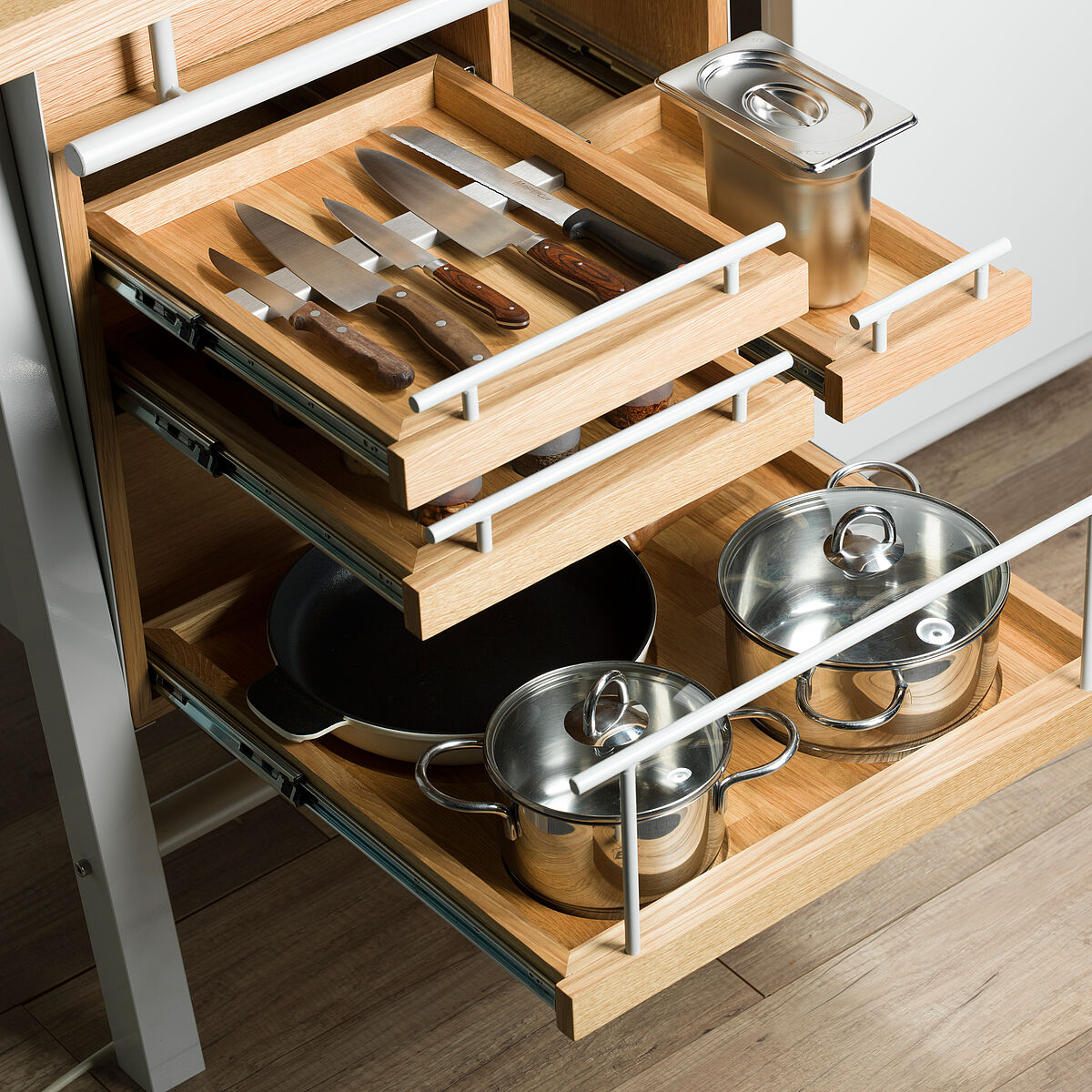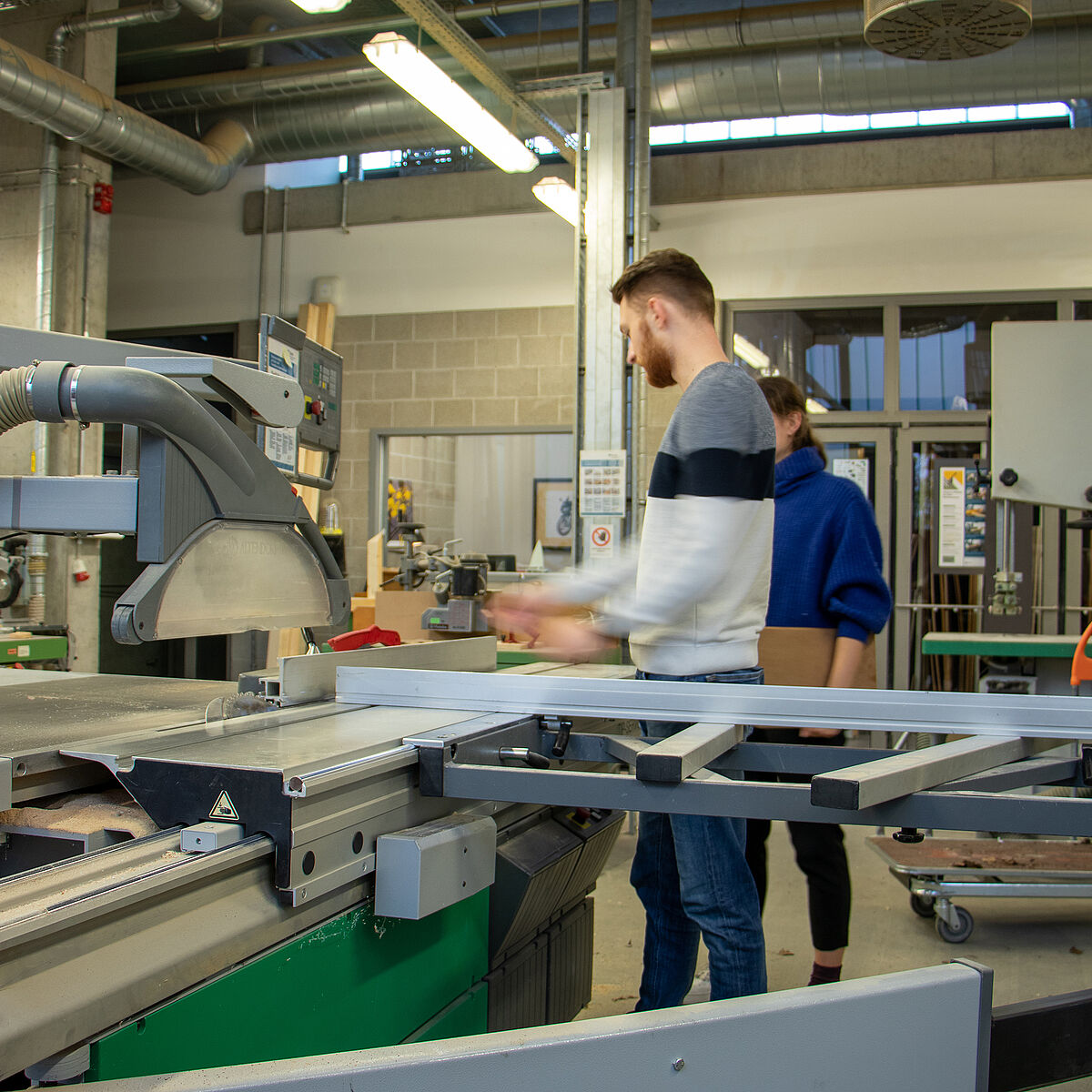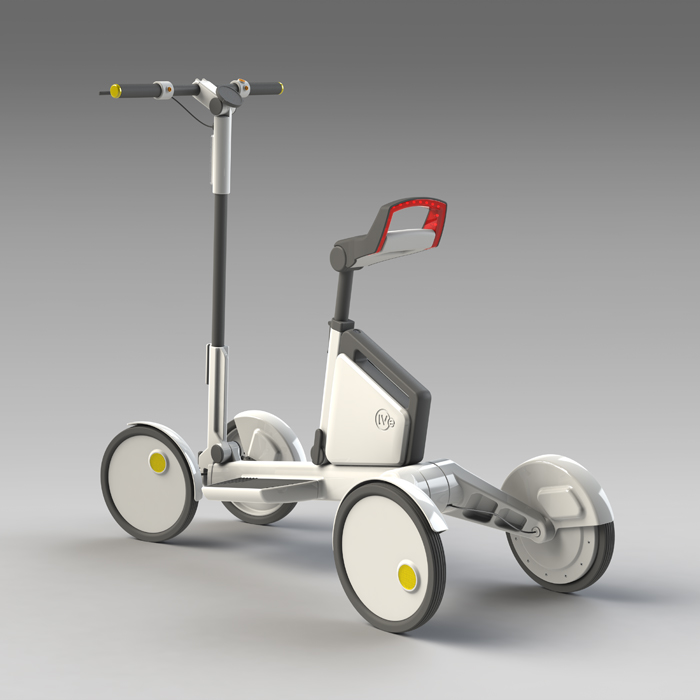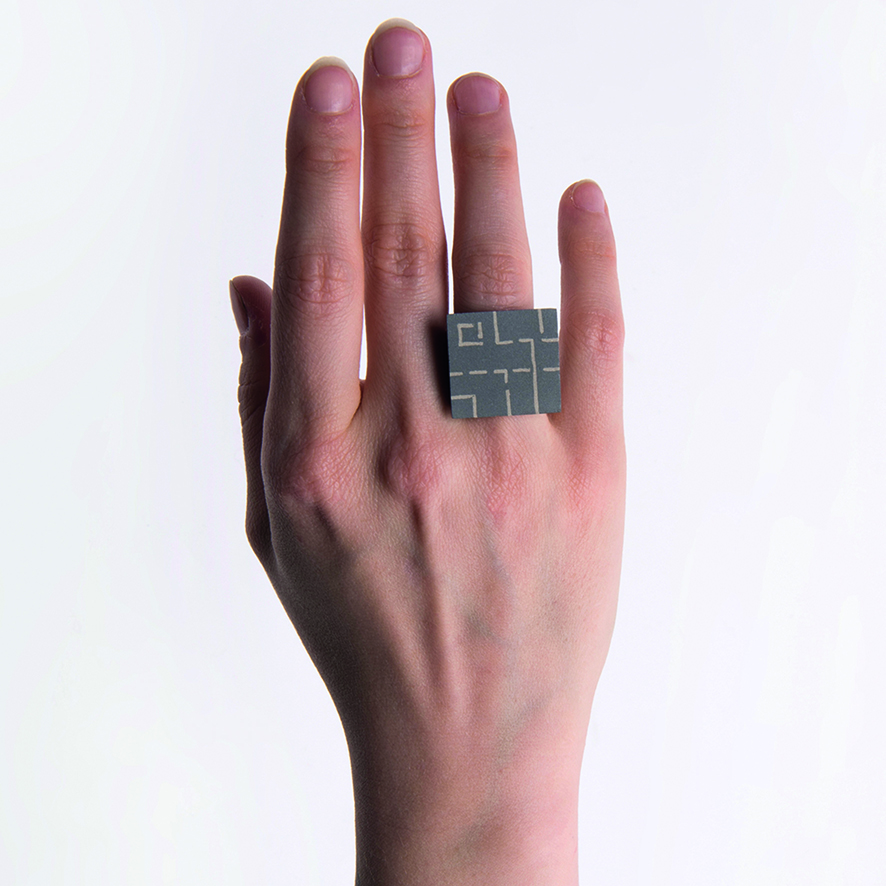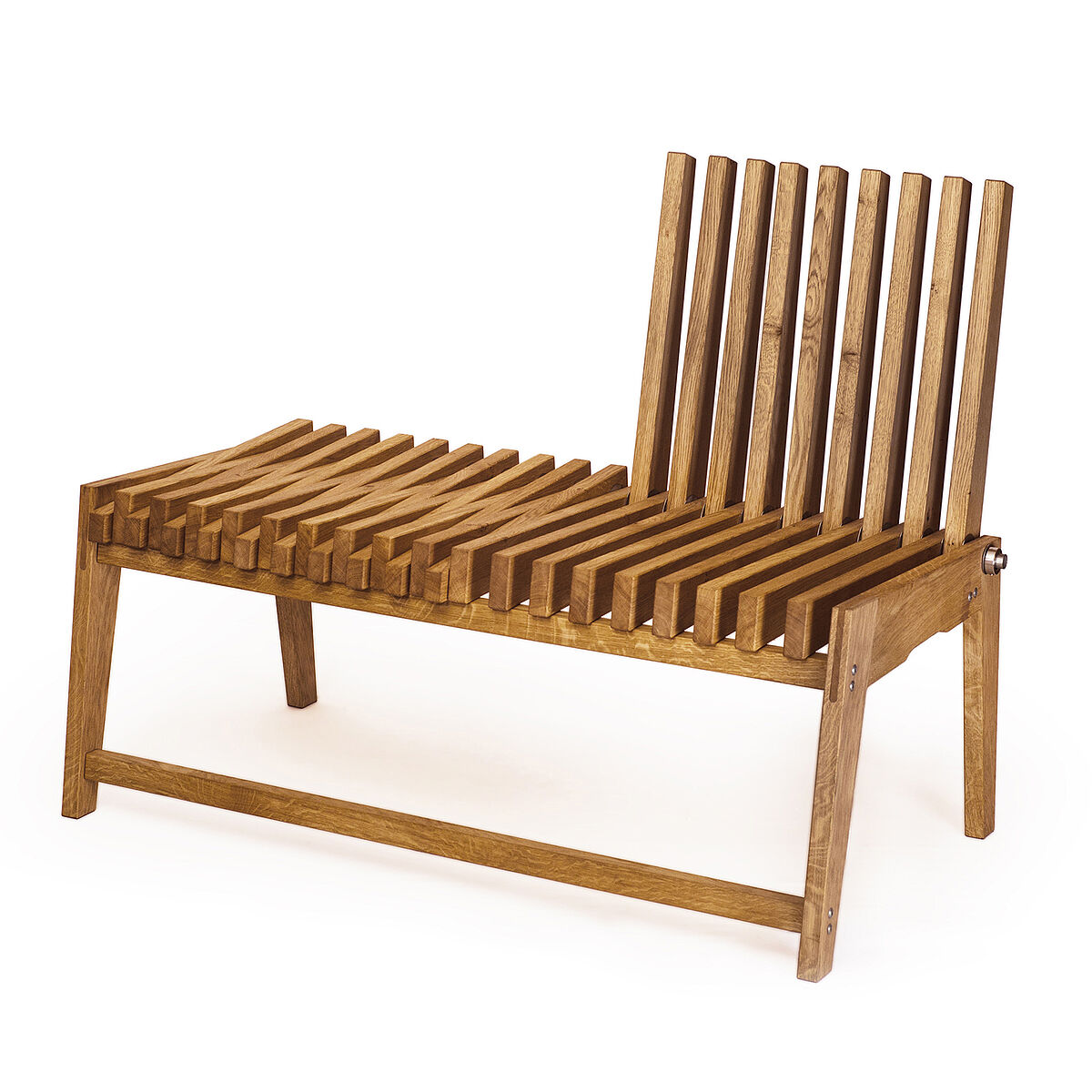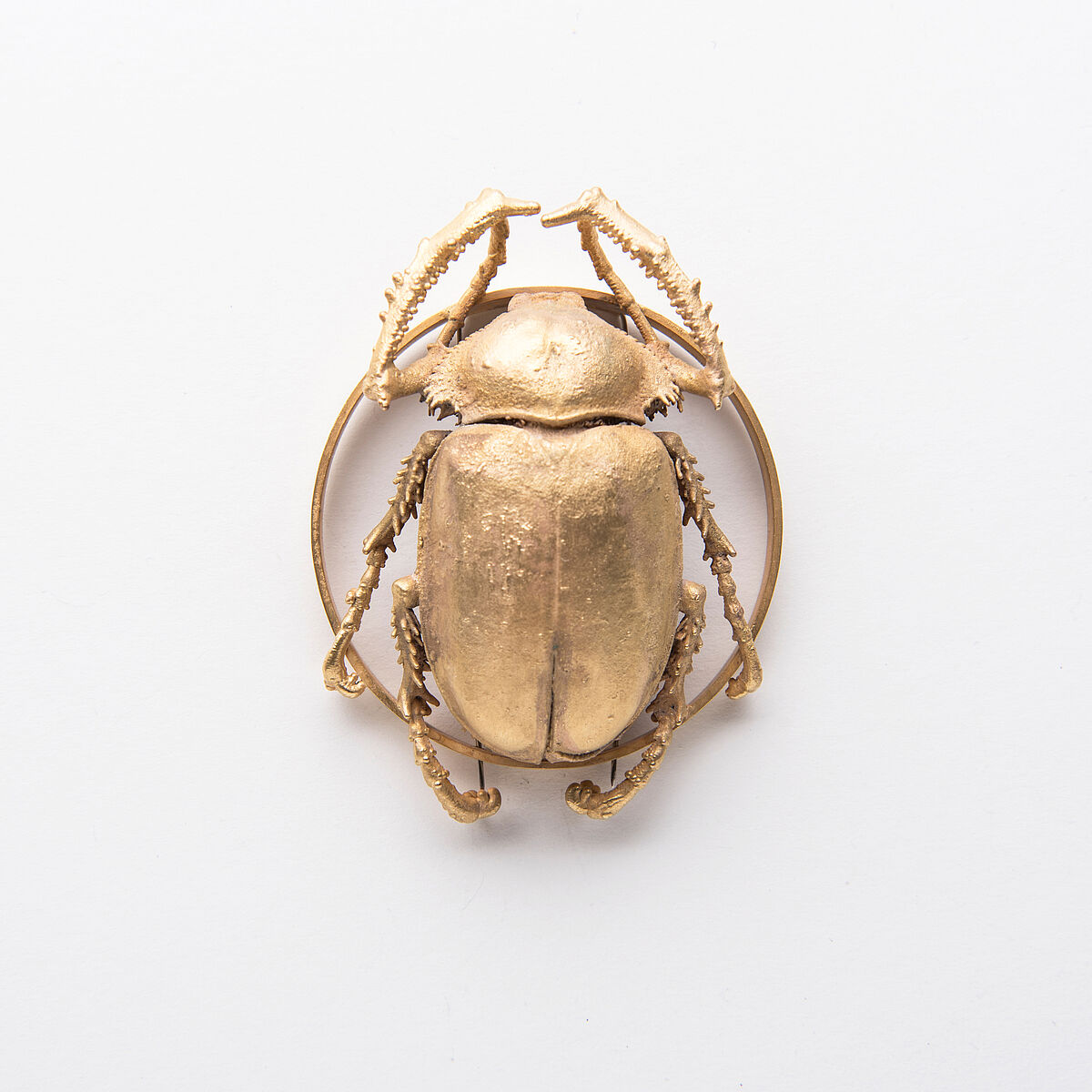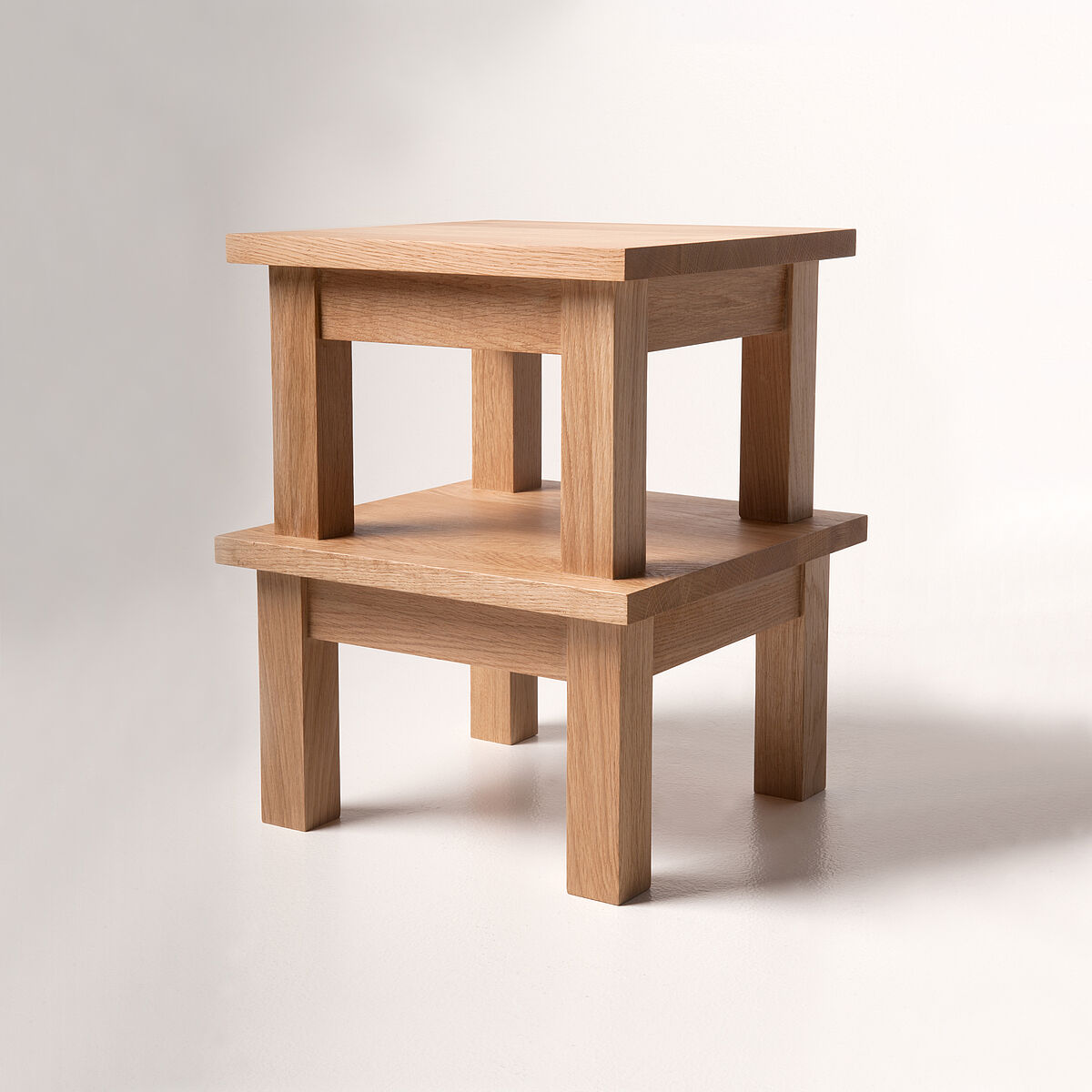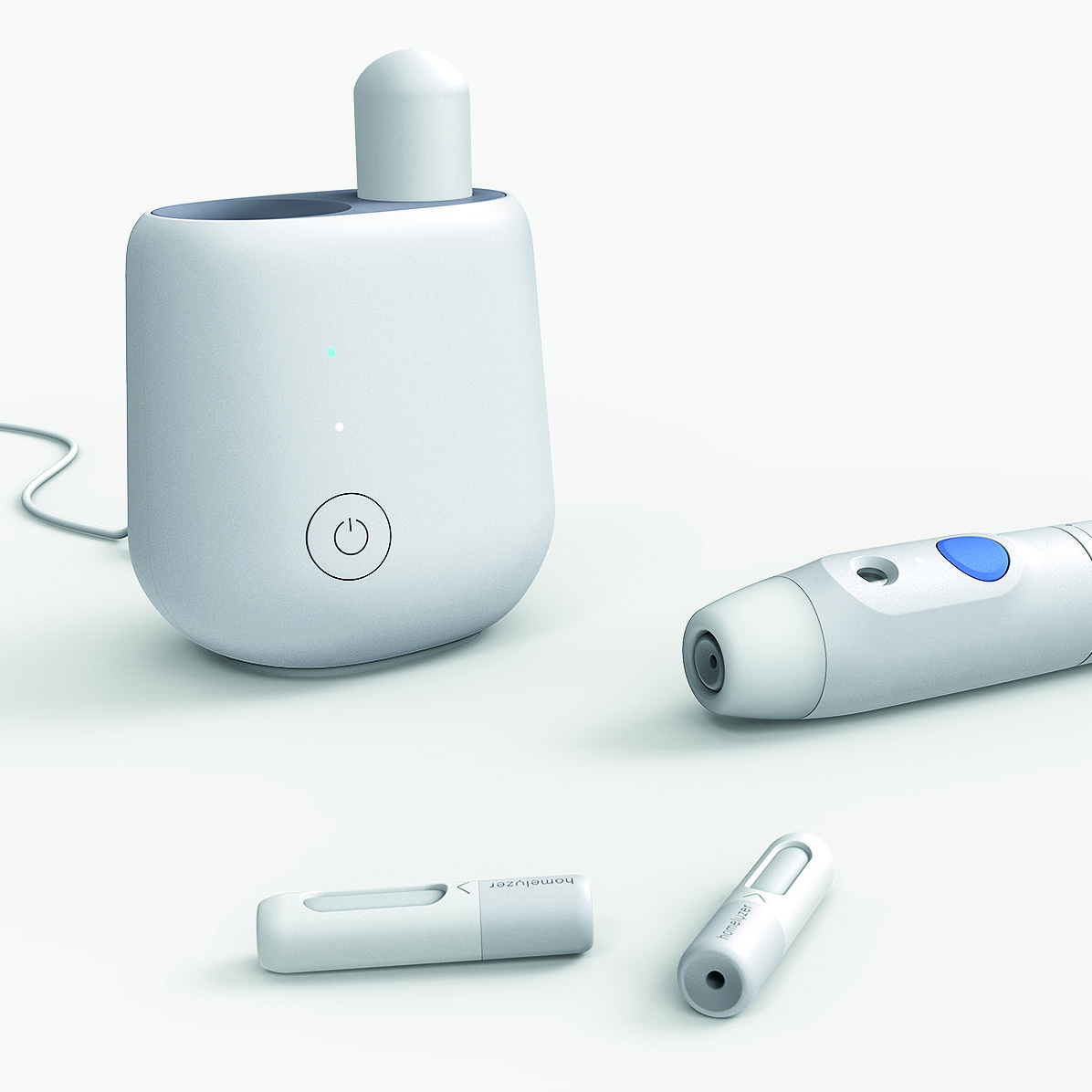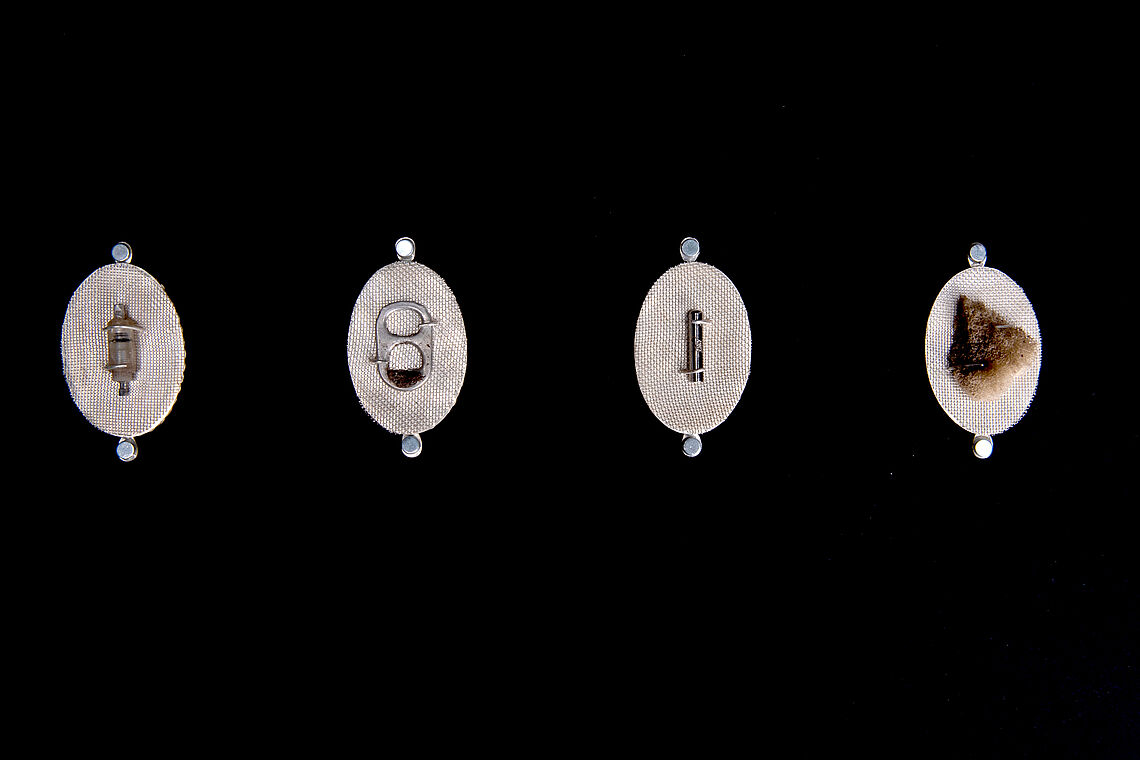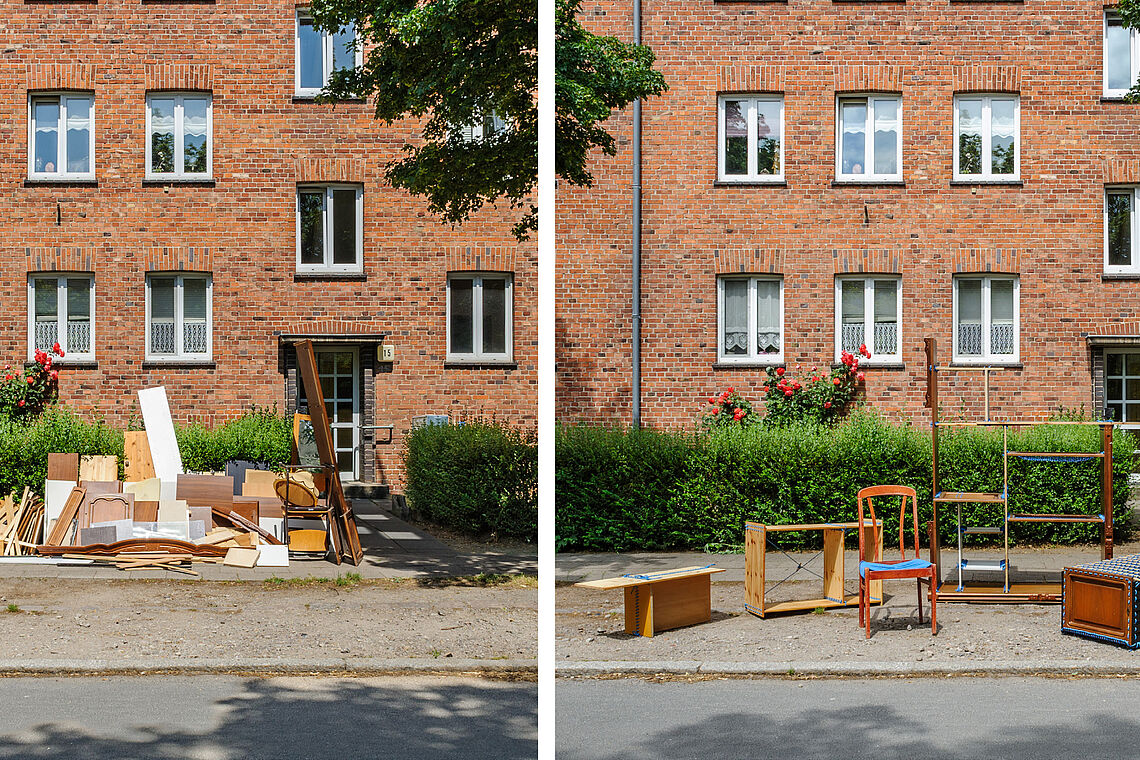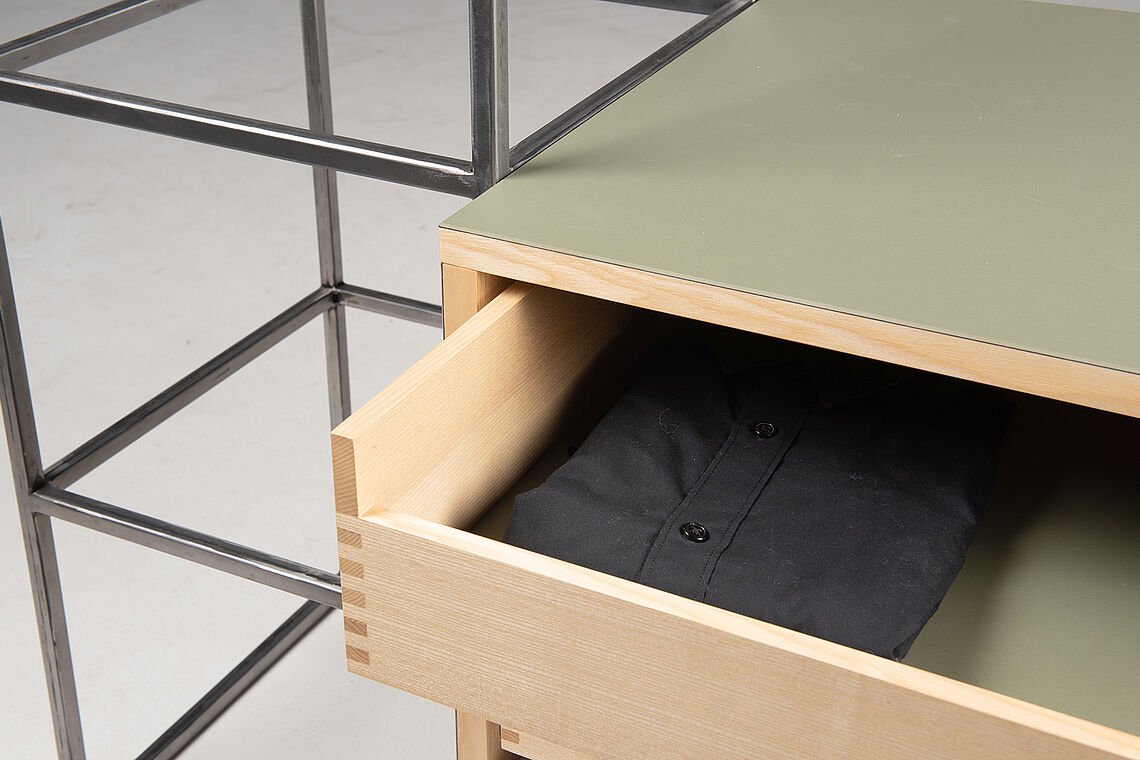Design – Product and Jewellery
Designers design products, objects, and processes; and they make them usable for the manifold tasks demanded by a constantly developing living and working environment. The demands for the development of future-oriented concepts are complex; their premises are subject to constant changes. Apart from considering functional, technological, and aesthetic matters of the commissioned design, the critical analysis of the social and ethical context also plays an important role.
The bachelor’s degree course Design – Product and Jewellery combines the equivalent teaching contents with a network of interdisciplinary collaborations within the university and the professional world. The course’s place within the artistic and creative-oriented faculty and the surrounding university environment that is significantly characterised by the engineering sciences, constitutes an ideal environment. The acquisition of extensive competencies of design-oriented theoretical and practical disciplines of art and technology forms the basis for dealing with a broad spectrum of projects which is the subject of student research, ranging from artistic experiments to serial products.
The bachelor’s degree course Design – Product and Jewellery provides the foundation for studying the master’s degree course Material Culture Design.
Study Counseling
Course Content
The modules of the bachelor’s degree course Design – Product and Jewellery are structured systematically. Broad and diverse fundamental studies accompany and support students during project modules. Apart from the specialist projects which depict the degree course’s areas of specialisation, the classification of compulsory and compulsory elective modules makes it possible to consolidate knowledge in specific areas and enables students to develop their own advanced study profiles. An internship and the opportunity to study abroad for a semester at partner universities enhance the practical application of the degree course.
The degree course is divided into the following teaching fields:
Basics 1
(e.g. drawing, design teaching, photography, colour design, repertoire of forms)
Basics 2
(e.g. modelling, digital modelling, physical computing, virtual depiction)
Design – Area of Specialisation
(e.g. material and craftsmanship, technology-based design, jewellery and series, human-centered design, social design, internship, bachelor's dissertation)
Design – Advanced Studies
(e.g. interdisciplinary studies: objects of everyday culture – jewellery, engineering, lighting design, product design – process and strategy)
Academia/Theory
(e.g. cultural studies, history of art, design critique, materials science, construction/technology, founding a business)
Compulsory elective modules at Hochschule Wismar and the Faculty of Architecture and Design
(e.g. projects on topics in theory/academia, art/design, depiction, foreign languages)
The degree course is completed by the bachelor's dissertation (specialisation area in design). The undergraduate university degree “Bachelor of Arts” (B.A.) constitutes a solid foundation for working as a designer and is a requirement for pursuing a master’s degree course.
Career Opportunities
The interdisciplinary and integrative character of the degree course Design – Product and Jewellery qualifies graduates of the focal points Product Design and Jewellery Design for a wide range of tasks in their future profession. On their own and in teams, the graduates work on projects and assignments for design agencies, companies’ research and design departments, and they also work at their own studios. At the same time, graduates find jobs with interdisciplinary tasks at cultural and educational institutions, such as museums, publishing houses and trade fair centres.
Facts
Academic Degree
Bachelor of Arts (B.A.)
Faculty
Design
Campus / Distance learning
Studies on campus
Normal period
7 Semester
Start of studies
to the winter semester
Specialisations
Produktdesign
Schmuckdesign
Place of study
Wismar
Classroom Languages
german
Accreditation
This course has an accreditation
- Hochschul- bzw. Fachhochschulreife
oder
- Nachweis des Abschlusses einer anderen Vorbildung, die im Land Mecklenburg-Vorpommern als gleichwertig anerkannt wird
oder
- Bestehen einer Zugangsprüfung (für Bewerber ohne Hochschul- bzw. Fachhochschulreife) nach mindestens zweijähriger Berufsausbildung und mindestens dreijähriger beruflicher Tätigkeit in einem Berufsfeld, welches einen unmittelbaren Sachzusammenhang zum angestrebten Studiengang aufweist.
oder
- Bestehen einer Prüfung als Abschluss einer Fortbildung zum Meister/ Meisterin nach dem Berufsbildungsgesetz oder der Handwerksordnung in der jeweils gültigen Fassung
sowie
- Nachweis über ein Vorpraktikum von mindestens acht Wochen in Handwerksbetrieben, von denen fünf Wochen vor Studienbeginn absolviert sein müssen
und
- erfolgreiche Teilnahme an der Prüfung über den Nachweis einer entsprechenden künstlerischen Befähigung – dieses Verfahren beinhaltet die Einreichung einer Mappe mit künstlerisch-gestalterischen Arbeiten sowie eine Eignungsprüfung.
